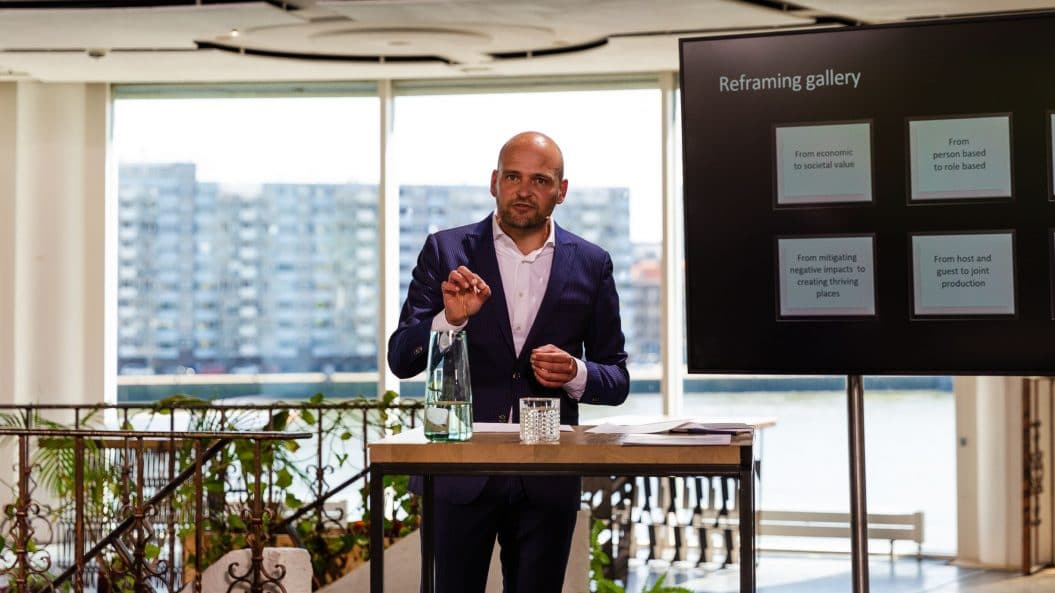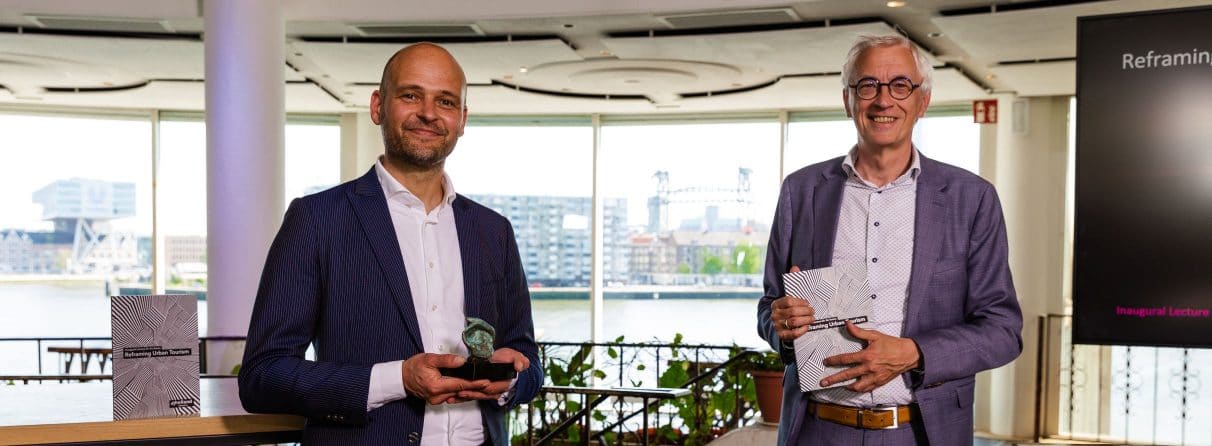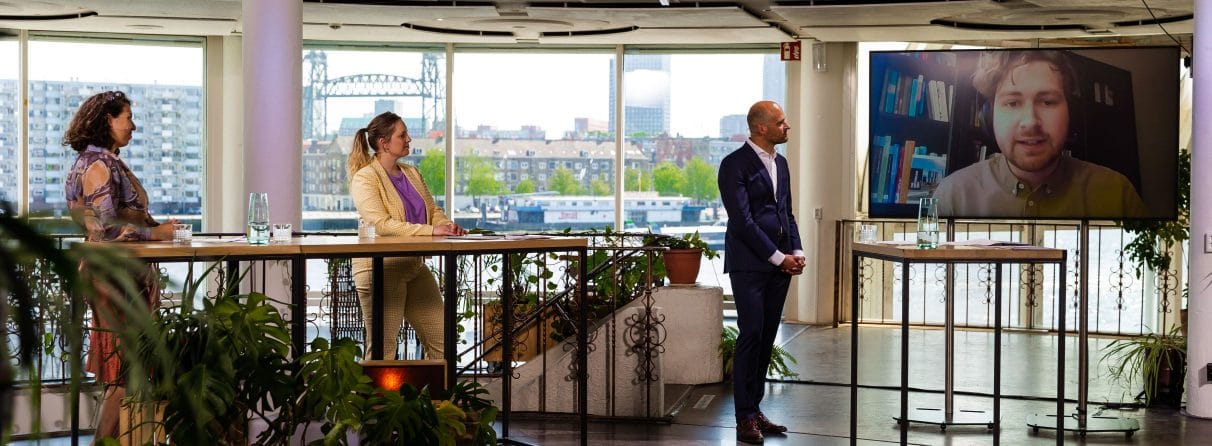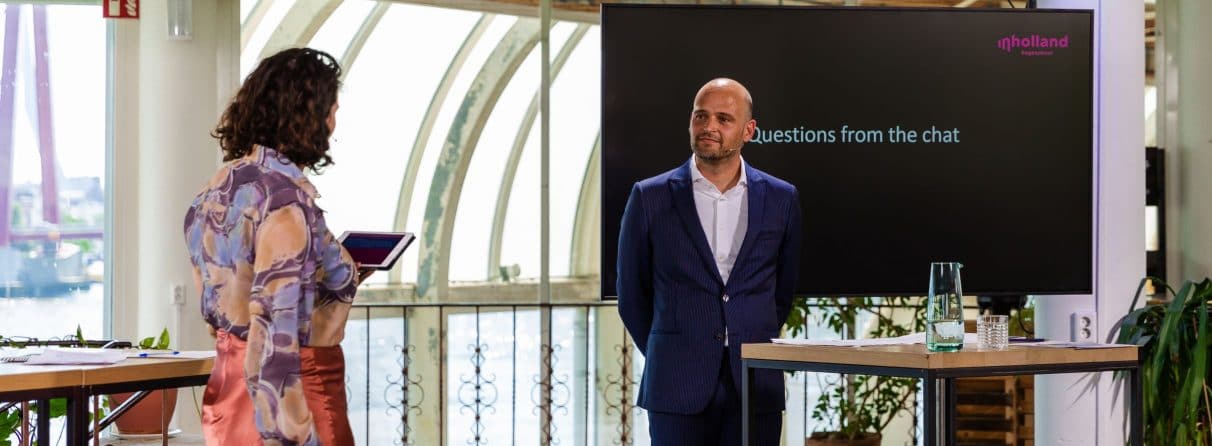The coronavirus has turned tourism in cities upside down. The empty streets and squares invited us to think about how we deal with large numbers of visitors. Will we go back to our old ways in the future, or do we want change? Ko Koens, professor of New Urban Tourism, argues for the latter. In his inaugural lecture on 2 June, he outlined the possibilities of a radically different perspective. Look at tourism as an integral part of multiple processes that can make cities better. ‘We’re doing this in Rotterdam with the motto that actions speak louder than words. Together with students, we are exploring the possibilities in practice.’
Ko delivered his speech at a symbolic moment and in a symbolic place. Behind him, the windows of BlueCity – a hub for pioneers in the circular economy – offered a view of the sunny Rotterdam city centre awakening from its lockdown. With guests attending both from the Netherlands and from abroad, all eyes were on the brand-new professor – either online or at least 1.5 metres away. We are dealing with the coronavirus, but we are also looking ahead. How can tourism start developing again? Led by moderator Samira Ben Messaoud, Ko shared with us his vision for the future.
Radical change
‘There is a real need for change in tourism in cities,’ Ko says. ‘I have seen many proposed visions, but very few strategies and plans. It would therefore come as no surprise to me if we were to fall back into the old routine.’ Ko calls for a radical, systemic change in which tourism can have a positive impact on cities. ‘This change requires a holistic view in which we see tourism as an integral part of the city, allowing us to open a new door to a new perspective to make cities better.’



